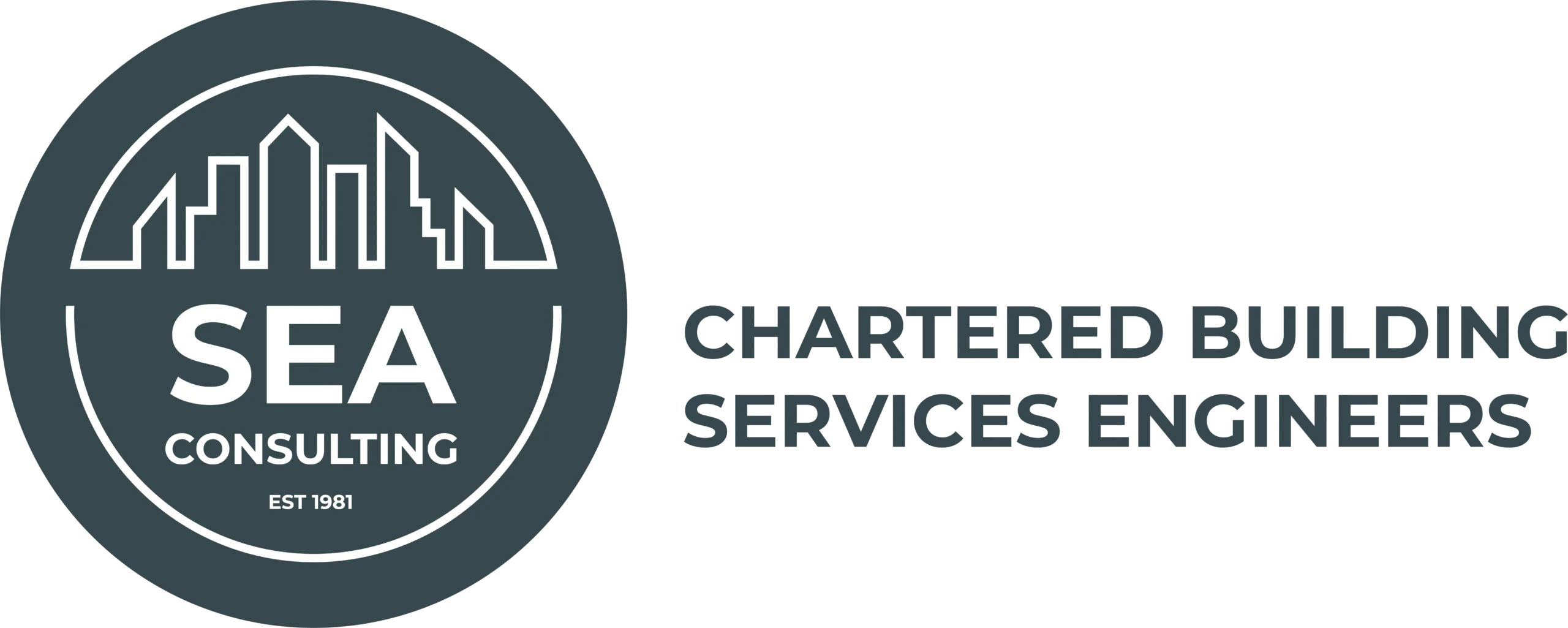SEA Consulting have been surveying buildings and giving advice for 40 years, in that time we have built up an extensive network of highly professional compliance specialists who we work with. We regularly manage the full spectrum of compliance surveys and reporting for our clients making their lives easier please contact us to discuss your needs.
EPC Surveys & MEES Reports
TM44 Air Conditioning Inspections
Fire Risk Assessments
Asbestos Management Reports
Electrical Safety Certificates
Gas Safety Certificates
Lease Plans
EPC and MEES Improvement Reports |
EPC and MEES Improvement Reports

When a property is constructed, sold or let then an valid EPC must be provide in order to sign the legal paperwork. Where a property is being let then the building must also comply with the Minimum Energy Efficiency Standards (MEES) which is currently a E Rating.
Click here to learn more about how SEA Consulting can support you in improving your EPC Rating and MEES, we offer level 3-5 EPCs.
TM44 Air Conditioning Inspections |
TM44 Air Conditioning Inspections
Where a building has air conditioning systems installed, with a capacity greater than 12kW (approx. 3 wall units) in it required to be inspected by an accredited air conditioning inspector at regular intervals (at least every 5 years)
SEA Consulting can help you with TM44 Air Conditioning Inspections, we can even provide you with actionable insights to reduce your AC costs and increase energy efficiency.
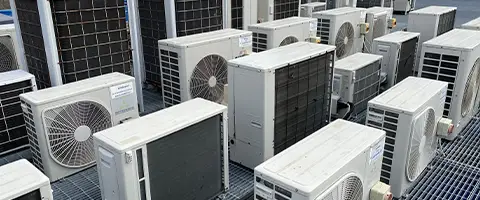
Fire Risk Assessments |
Fire Risk Assessments

Managing fire risks is vital for property safety. The first step towards protection is conducting a fire risk assessment (FRA) to identify potential hazards. FRAs are legally required for all ‘non-domestic’ premises and provide a snapshot of a property’s fire safety measures.
In brief the process involves:
- Identify the fire hazards
- Identify the people at risk
- Evaluate reduce or remove risks
- Record your findings, prepare an emergency plan and provide training
- Review and update the fire risk assessment regularly
Regular review of the FRA is essential. It’s recommended to:
- Review the assessment annually.
- Conduct a new assessment every five years.
- Reassess if the building’s purpose or structure has significantly changed.
- Reevaluate if there’s been a notable change in occupants.
These reviews ensure that fire safety measures remain up to date and effective in protecting occupants and property against fire hazards. In addition, having a comprehensive knowledge of fire safety legislation and how this interacts with building regulations, building materials, building usage and any materials used by occupants are all essential elements to conducting a thorough FRA.
Understanding the continually developing Fire Regulations has been part of SEAs remit for as long as we have been in practice. Assessing and designing fire suppression systems for client projects is part of our core Building Services skill set, extending this to incorporate Fire Risk Assessments was a logical step in our holistic approach to helping our clients manage their assets.
Asbestos Management Reports |
Asbestos Management Reports
A Management Report serves as the standard survey aimed at identifying, to the extent reasonably practicable, any suspect Asbestos-Containing Materials (ACMs) within a building. This includes those that could potentially be damaged or disturbed during normal occupancy, including foreseeable maintenance and installations. The primary goal is to assess the condition of these materials and is the first step towards compliance under the duty to manage asbestos in non-domestic properties.
Management surveys typically involve minor intrusive work and some level of disturbance, varying based on factors such as building type, construction nature, and accessibility. They include an evaluation of ACMs’ condition and their potential to release fibers into the air if disturbed. This assessment helps prioritize ACM management efforts.
Sampling and analysis are usually part of the survey to confirm ACM presence or absence. However, management surveys may also presume ACM presence or absence.
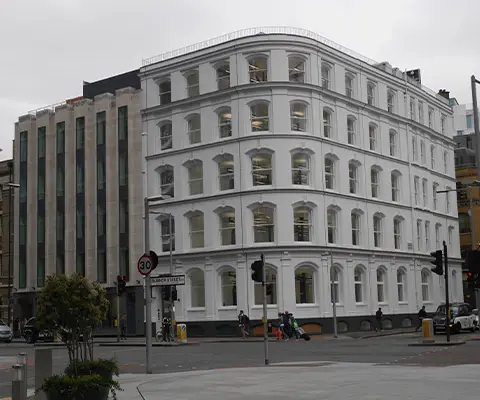
They can utilize a combination of sampling, presuming, or solely presuming ACMs. Additionally, any materials presumed to contain asbestos must undergo a condition assessment (material assessment). At SEA we have been responsible for the refurbishment of 100s of buildings and their services, heating systems, water systems, electrical installations, plant rooms are all common areas containing ACMs.
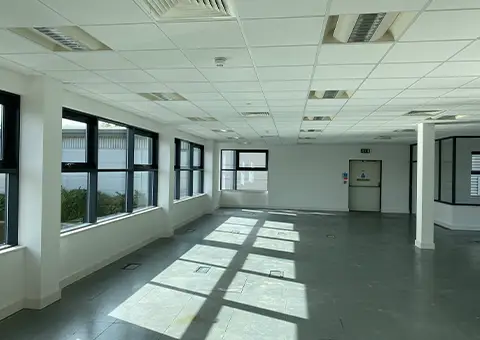
Asbestos Refurbishment Survey
These reports are not for buildings in use but where a major refurbishment may be about to occur, in this instance the disturbance to the building may open up other sources of asbestos previously unidentified, so the survey is more intrusive by definition. They do cause damage to existing fabric and its important therefore to be clear on the scope of works about to be undertaken before commencing the survey. As CIBSE engineers we have project managed the design and installation of very large and complex HVAC projects across the UK in all ages and types of building. ACMs occur regularly in the field of HVAC installations and so we are very familiar with assessing buildings for ACMs and providing reports for refurbishment schemes.
Electrical Safety Certificates |
Electrical Safety Certificates
Also known as Electrical Installation Condition Reports (EICR) , these reports are required on any let space whether commercial or residential. On residential properties it is the duty of the Landlord to provide these and the duty is explicit. In commercial properties and commercially leased properties the duty is not explicit but is implied in the following legislation.
The Electricity at Work Regulations 1989 states electrical systems and installations in commercial premises are maintained in a safe condition.
The provisions of The Health and safety at Work Act 1974 would also necessitate having an EICR.
Lastly The British Standards BS 7671 (IET Wiring Regulations) also stipulates that electrical installations should be periodically inspected and tested. Certain businesses in certain sectors may also be required to meet specific regulations to comply with.
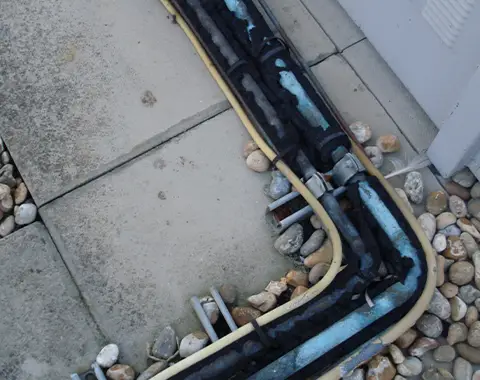
It may be that the terms of a lease make it the tenant’s responsibility to meet the duties outlined above so its important to understand the terms of the lease in this regard.
Your insurers may require you to provide these documents as part of your PI and PL policies.
The provision of power and distribution is a key component of Building Services, and we can provide both EICR and broader Installed Equipment Condition and Safety checks for your peace of mind.
Gas Safety Certificates |
Gas Safety Certificates
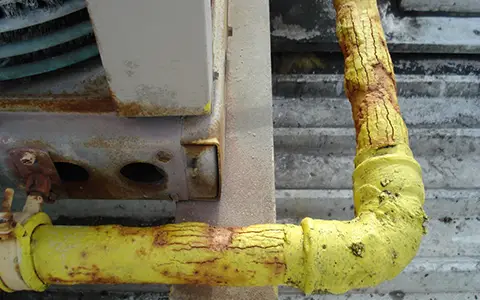
If you own a business and have gas appliances, you are legally required to hold a valid Commercial Gas Safety Certificate known as a CP12 – to not have one risks the safety of staff and customers, plus means you’ll be breaking the law. The Commercial Gas Safety (Installation and Use) Regulations 2018.
Typically the range of Gas appliances can include:
Boilers, Water Heaters, Ovens, Hobs, Grills and Gas fires amongst others. The test is required yearly.
Please contact us to discuss your compliance needs.
Lease Plans |
Lease Plans
As part of a lease renewal or new lease agreement we can survey and draw up a lease plan, we often combine these with EPCs for a simple one stop shop. Our Plans are Land Registry Compliant and produced at appropriate scales for the property or building in question. Combining the EPC and Lease Plan saves time and money and with our other compliance services provides a useful single point of contact for all your commercial property needs.

Frequently Asked Questions About Landlord Services
Why should landlords work with reputable MEP designers?
Reputable MEP design firms ensure that your property complies with all relevant regulations and standards, minimizing risks and safeguarding against potential litigation. They provide expert design and management of mechanical, electrical, and plumbing systems, which are crucial for tenant safety and property value.
What are MEES and why are they important for landlords?
MEES (Minimum Energy Efficiency Standards) are regulations that require rental properties to meet specific energy efficiency criteria. Working with a reputable MEP designers ensures your property meets these standards, helping you avoid fines and making your property more attractive to tenants.
How can an MEP design firm help with EPC compliance?
An Energy Performance Certificate (EPC) rates a building’s energy efficiency. MEP designers and building services engineers can improve your building’s EPC rating through optimized HVAC systems, lighting, and insulation, ensuring compliance and enhancing the property’s marketability.
What is TM44 ACI, and why do landlords need to comply?
TM44 Air Conditioning Inspections (ACI) are mandatory energy assessments for air conditioning systems over 12kW. Compliance ensures energy efficiency and safety, reducing operational costs and legal risks. MEP building services consultants conduct these inspections and implement necessary improvements.
How do MEP firms contribute to fire risk management?
MEP firms design and maintain fire safety systems, including alarms, sprinklers, and emergency lighting, ensuring they meet legal standards. This reduces fire risks and ensures tenant safety, protecting landlords from liability.
Why is asbestos management important, and how can MEP firms help?
Asbestos poses significant health risks and legal liabilities. Building services engineers ang mep designers conduct thorough asbestos surveys and manage safe removal or containment, ensuring compliance with regulations and protecting occupants’ health.
What are the benefits of electrical safety checks for landlords?
Regular electrical safety checks prevent hazards like fires and electrocution, ensuring tenant safety and legal compliance. MEP building services engineers perform comprehensive inspections and maintenance, safeguarding your property and reducing liability.
How do gas safety checks protect landlords and tenants?
What role do MEP Building Services Consultants play in creating lease plans?
Building services engineering consultants provide can check through your lease plans and the building services and infrastructure. Accurate plans ensure clear agreements, reducing disputes between landlords and tenants and facilitating smooth property management.
How does working with an MEP Building Services Constulatnt prevent future litigation?
By ensuring compliance with all relevant regulations and standards (MEES, EPC, TM44 ACI, fire safety, asbestos management, electrical and gas safety), MEP building services consultants help landlords avoid legal issues and penalties. This proactive approach protects both property value and landlord reputation.
